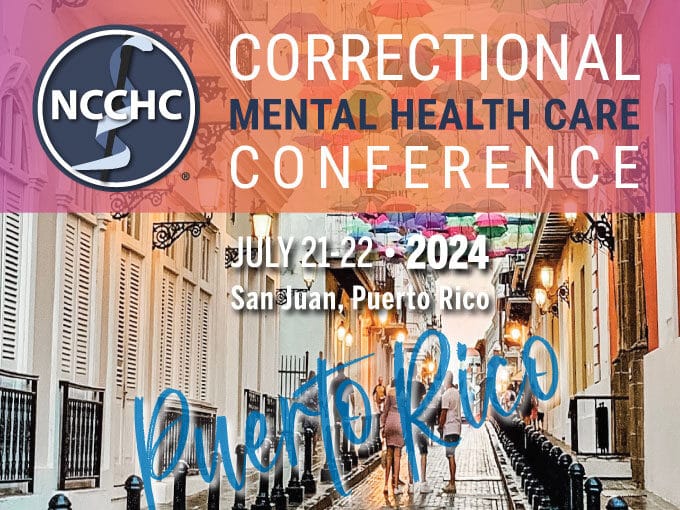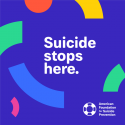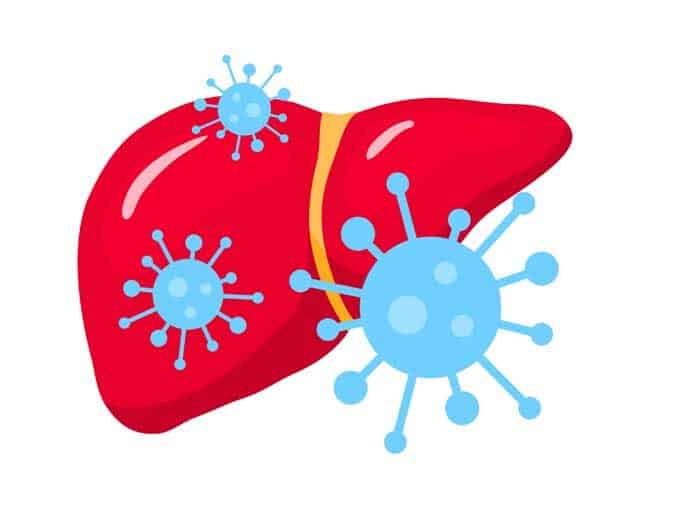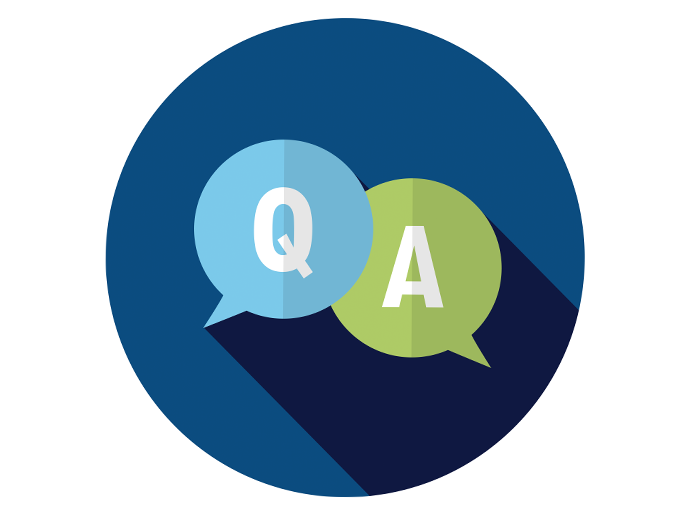
Say hola to Puerto Rico
The 2024 Correctional Mental Health Care Conference will be held in sunny San Juan!
Home Suicide Prevention: This Week, and Always
 Sep 2, 2021
Sep 2, 2021Sunday marks the start of National Suicide Prevention Week, Sept. 5-11, 2021. Now more than ever, we need to work together to stop suicide.
In 2019 the National Commission on Correctional Health Care and the American Foundation for Suicide Prevention created an authoritative resource on preventing suicide in correctional facilities: the Suicide Prevention Resource Guide. As timely as ever, the guide is free for download, and a limited number of hard copies are available from NCCHC.
Drawing from both organizations’ expertise, with input from national experts in the field of correctional mental health and suicide prevention, this guide provides a road map, tools and resources for navigating the complexities of suicide prevention within correctional facilities – a serious problem in the United States.
“The collaboration between our organizations and national health care providers underscores the importance of working together to tackle the problem of suicide,” said Brent Gibson, MD, MPH, CCHP-P, chief health officer, NCCHC. “It represents a true ‘meeting of the minds’ with the potential to save lives.”
The nation’s largest suicide prevention organization, AFSP, joined NCCHC’s ongoing efforts to reduce suicide among incarcerated populations as part of its Project 2025, which aims to reduce the annual suicide rate 20 percent by 2025. AFSP identified the correctional system as one of four critical areas where evidence points to saving the most lives in the shortest amount of time.
“We greatly appreciate the teamwork that went into the publication of this guide, and we are especially grateful to AFSP for their guidance, subject matter expertise, and support,” said Deborah Ross, CCHP, chief executive officer, NCCHC.
The Suicide Prevention Resource Guide focuses on three key areas, with the goal to educate people who work in jails and prisons on how to better identify and help inmates at risk for suicide, safely manage those identified as high risk, and provide consistent, comprehensive training to all involved personnel.
“Research tells us that people in times of transition are at especially high risk for suicide, and incarcerated people are particularly vulnerable due to health and situational reasons,” said Robert Gebbia, CEO, AFSP.
The Guide includes suicide risk assessment principles, approaches to intervention and treatment, a training curriculum guide, real-life case studies, and facility design considerations.
Risk assessment, treatment, and training were identified as essential elements to effective suicide prevention by a group of experts who gathered to brainstorm at a series of summits cosponsored by NCCHC and AFSP. The group included mental health experts from the nation’s largest jail and prison health care providers, thought leaders from jails, departments of corrections, universities, the federal government, and leaders from NCCHC and AFSP.


